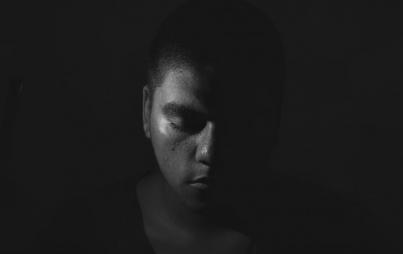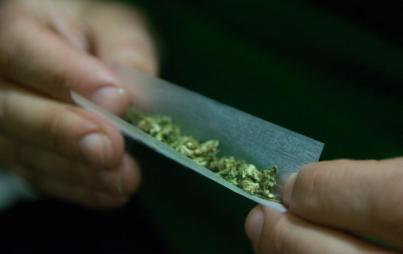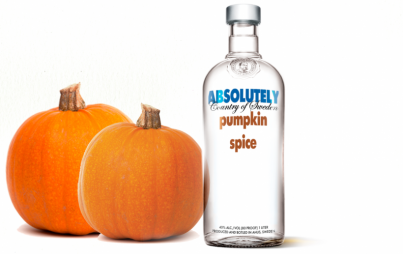
Greetings, New Year's revelers! Though I am writing this a couple days before the dawn of 2015, I feel confident that at the time this story is published, I will be coiled tightly in bed, my head pounding with a dull roar, my mouth dry as a funeral drum, and my stomach gurgling in retaliation against that fateful fourth champagne flute.
No doubt you will be sharing in my pain, because really, what kind of New Year's Day would it be without the agony of a hangover to wallow in? (Perhaps we endure this pain as a way to ensure it can only get better from here in the new year?)
Each time January 1 comes, I am left wondering, as so many others must also do, too: Why is there no cure for the hangover?
Hangovers are, after all, more than a nuisance. According to the CDC, excessive alcohol consumption cost us about $223.5 billion a few years ago; of this, 72% was attributable to workplace productivity going down, which can be directly connected to sauntering into the office with a muddled mind and stomach on the precipice of disaster. And that's to say nothing of the money to be made from such a cure; imagine if a company was able to design a magical pill to cure all hangovers. It could be the most profitable drug since a certain little blue pill.
Before getting functionally wiped out by the subject of my story as the sparkly ball drops on 2014, I decided to look into the search for a hangover cure.
Where it led me was not a place I had hoped to land at.
The Search For Hangover Heaven
"Cures" for the hangover have been peddled for just about as long as there have been hangovers, and many people still abide by some homespun strategy they swear works (personally, I'm a fan of burnt toast).
But in the sanctioned realm of medicine, remedies have long relied on herbal supplements, which—because they are not approvable by the FDA—are often of questionable legitimacy.
In 2011, a hangover pill was finally approved by the FDA: lemon-flavored dissolvable tablets called Blowfish. A crafty concoction of two parts Alka-Seltzer, 1 part aspirin, and 1 part coffee—all drugs approved by the agency—Blowfish was deemed acceptable for sale and not deceptive to the public.
On Amazon, Blowfish pills have a four-star rating from 63 reviews, suggesting they are indeed effective for many. And they've been met with positive, if tempered, reviews. As a writer for the dubiously named Guyism put it:
"The concoction didn’t immediately make me feel like skipping on rainbows nor did it fool me into thinking I wasn’t over-served by a few generous bartenders the night before. What it did do was quickly clear the fog . . . it will definitely be in my apartment for the rest of my drinking life."
Blowfish isn't the only high-profile remedy on the market. Earlier this year, the buzzed-about Never Hungover was officially released. This dietary supplement, which is not currently approved by the FDA, comes in a bottle that helpfully trumpets the ways in which it can be consumed: "Shoot It Or Mix It." According to the product website:
"It’s formula helps neutralize and process the toxins caused by alcohol in the liver and kidneys (known as acetaldehyde’s), by turning them into acetic acid which is flushed out of the body, thus drastically reducing the cause of a hangover."
As an added bonus for the health-conscious boozehounds among us, the drink is heralded as being free of carbs, calories, sugars, caffeine, and gluten (sidebar: wait . . . is it really just water in a fancy bottle?) The drink has a 3.9 rating on Amazon based on 18 reviews, with many stating it works pretty well but tastes like shit.
Looking for something with more pizzazz? Dr. Jason Burke treats sufferers via the Hangover Heaven "mobile clinic," a blue and white bus with this winning tagline: "Feel Like Hell?" Described by Reason as a "cross between an ambulance and a conference room at Embassy Suites," the bus comes outfitted with a front lounge area, kitchenette, private consultation room, four private bunks, and a private rear lounge. Patients who hop on board are administered branded medical cocktails by EMTs. Packages include Redemption, which utilizes one bag of saline solution, vitamins, and an anti-nausea medication; and Salvation, which throws in an extra shot of saline and an anti-inflammatory. Hangover Heaven is based in—where else?—Las Vegas.
All this is to say nothing of the would-be cures currently in development, each touted as the remedy we've all been waiting for. In 2013, for instance, there was lots of hype about a new hangover drug using nanotechnology to mimic liver enzymes, developed by science professors at UCLA at Stanford. But while the pills proved effective on, yes, drunk mice, they remain for now in development purgatory.
Medical cures, then, are a possibility. So why is there no Viagra for the hangover? That answer rests with both science and a pesky little thing called medical ethics.
The Body Knows Best?
Interestingly, hangovers continue to mystify scientists, much as they mystify us all. In a BBC article, Dr. Aaron White, a neuroscientist with the National Institute for Alcohol Abuse and Alcoholism, said simply:
"You'd think we know the answers [about hangovers]. We're still trying to figure that out."
What scientists do know is that every body reacts differently to alcohol (hence, that one annoying friend who can get soused and wake up the next morning feeling amazing). This makes coming up with a one-size-fits-all cure essentially impossible.
Beyond this, scientists looking for a cure—and really, the most effective cure would have to come from science—have always come up against a thorny ethical issue: namely, the question of if it's right to look for a cure in the first place. The hangover is, after all, the result of the body doing its job. Alcohol, for all the social lubricating it can engender at a New Year's Eve party, is a poison to the system that we are supposed to react adversely to.
Ideally, though this obviously doesn't always manifest as it should, hangovers should teach us to stop drinking so damn much, which in turn will save us from all the bad, bad things alcohol does to our body. Manipulating this natural process with medicine could have detrimental effects. As Dr. White said, specifically singling out binge drinking among teens: "[A hangover cure] may change their relationship with alcohol and have them drink more often."
A few years ago,The New York Times reported that some experts have argued that merely researching hangover remedies "raises ethical issues." (The article also makes this salient point: " . . . the prospect of bus drivers' or airplane pilots' popping hangover pills and going to work is enough to give anyone pause.")
In other words, we all might need to suck it up and face the consequences of our actions. Now, the question is: Have we learned our lesson?






